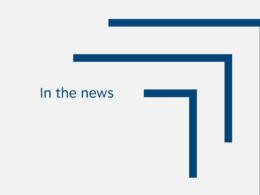Why interest rate swaps make sense for banks and borrowers
Banks often look for ways to educate their commercial borrowers about interest rate swaps. Particularly on how swaps work in conjunction with loans and, perhaps more importantly, what the advantages of swaps are, relative to traditional fixed-rate lending.
Why would a bank offer interest rate swaps?
- Gives the bank flexibility - Providing another tool to help manage its interest rate risk, not only at the loan by loan level but also at the macro or balance sheet level.
- Creates prepayment discipline - Differing from fixed-rate loan prepayment where penalties are often waived, costing the bank in lost economic value of equity.
- Offers an economic benefit - Executing a swap will generate non-interest income for the bank. This fee income is recognized in the period the swap is executed and is NOT amortized over the life of the loan.
- Provides competitive advantage - Separating the funding of a loan from the management of interest rate risk through derivatives provides pricing flexibility, usually allowing the bank to be more competitive.
It is the rare borrower who walks into a bank and says, “I want to do a swap!” More often than not, a borrower will say he or she wants a long-term fixed rate. As the bank will likely not be keen on extending a fixed-rate loan for beyond seven years, the banker will probably suggest a swap.
Subscribe for weekly market updates.
What are the benefits of interest rate swaps for borrowers?
- Swaps give the borrower flexibility - Separating the borrower’s funding source from the interest rate risk allows the borrower to secure funding to meet its needs and gives the borrower the ability to create a swap structure to meet its specific goals. For example, if there is a construction component or a stabilization period, the swap can match it with a forward starting swap or with an initial interest only period.
- There are prepayment benefits - Resulting in the event of a prepayment, the borrower has bilateral make whole with the swap, meaning the swap might be an asset and the borrower would receive the value of that asset on the way out.
- The swap usually leads to the lowest rate - Coupling a floating-rate loan with a swap often results in the lowest possible rate for the borrower.
In conclusion
An interest rate swap is a product that provides real benefits to both parties and is often the most elegant solution to meet the bank’s and the borrower’s needs.

Back-to-Back Swap Program Benchmark Statistics Report
Interested in seeing how your interest rate swap program stacks up relative to your peers? Perhaps your financial institution is not yet using swaps to win more commercial loan business, but would find value in reviewing and analyzing Chatham's Back-to-Back Swap Program Benchmark Statistics Report.
Subscribe to receive our market insights and webinar invites
Disclaimers
Chatham Hedging Advisors, LLC (CHA) is a subsidiary of Chatham Financial Corp. and provides hedge advisory, accounting and execution services related to swap transactions in the United States. CHA is registered with the Commodity Futures Trading Commission (CFTC) as a commodity trading advisor and is a member of the National Futures Association (NFA); however, neither the CFTC nor the NFA have passed upon the merits of participating in any advisory services offered by CHA. For further information, please visit chathamfinancial.com/legal-notices.
Transactions in over-the-counter derivatives (or “swaps”) have significant risks, including, but not limited to, substantial risk of loss. You should consult your own business, legal, tax and accounting advisers with respect to proposed swap transaction and you should refrain from entering into any swap transaction unless you have fully understood the terms and risks of the transaction, including the extent of your potential risk of loss. This material has been prepared by a sales or trading employee or agent of Chatham Hedging Advisors and could be deemed a solicitation for entering into a derivatives transaction. This material is not a research report prepared by Chatham Hedging Advisors. If you are not an experienced user of the derivatives markets, capable of making independent trading decisions, then you should not rely solely on this communication in making trading decisions. All rights reserved.
20-0008





